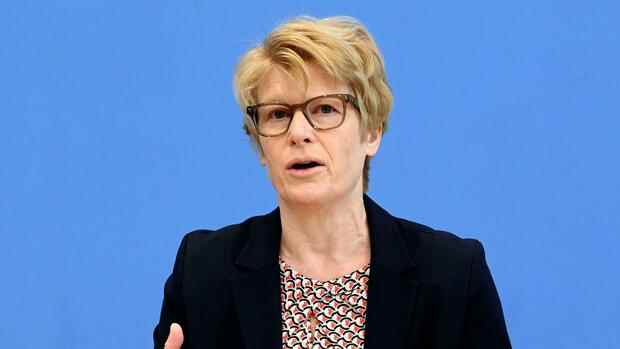Berlin The economist Veronika Grimm has warned the federal government against rejecting a possible energy embargo against Russia only because of its economic consequences: “I do not understand at all how one can come to the conclusion from economic considerations alone about the short-term effects of an embargo on Germany We advise against an embargo or similar steps that deprive Russia of revenue,” said the co-author of the Leopoldina’s most recent statement on the consequences of an embargo to the Handelsblatt.
There are “economic, security policy and ethical arguments for an embargo – some also consider it necessary in order not to endanger Germany’s reputation among allies,” argues the member of the German Council of Economic Experts. It is also not an all-or-nothing decision, because there are also proposals for a partial embargo or for the levying of customs duties.
Politics must decide anyway. But it is unnecessary to wipe scientific models off the table and denigrate them as wrong. It is enough if you explain the reasons for your decisions based on the existing facts,” said Grimm.
In doing so, she is explicitly targeting Chancellor Olaf Scholz (SPD). A week ago he massively criticized the economists – including those from the National Academy of Sciences Leopoldina – who had calculated that an energy embargo was also “feasible” for the Federal Republic, which is particularly dependent on Russian gas, oil and coal. Scholz accused them of using impractical mathematical models to calculate how much gas would theoretically be available on the world market and of calling for an import ban – and castigated this as “irresponsible”.
Top jobs of the day
Find the best jobs now and
be notified by email.
Business representatives, on the other hand, know very well that reality is different, said the Chancellor. Because gas must also be able to get to where it is needed. However, lines are not yet prepared for this.
In the event of an embargo, Grimm expects a severe economic downturn
Grimm counters this: “There are now a number of studies on the possible effects of a delivery stop, which, independently of one another, come to similar conclusions from different perspectives: It would be a huge challenge to immediately do without Russian energy entirely – but it would be in an emergency “makeable”.
>>Read here: Wirtschaftsweiser on inflation: “It could get much worse”
Of course, you have to define what “doable” means. Of course, “we would experience a severe economic downturn – roughly on the scale of Corona – and the state would have to use its fiscal leeway to cushion that.”
Economists have been arguing for weeks about how severe the slump would be. However, a possible recession is “not the only decisive question,” says Grimm. At least as important is “whether stopping the payments is a step that can curb the further escalation of the war and its possible spread to other regions”. This is affirmed by many security experts. “It must clearly be about restoring peace and stability in Europe. If this does not succeed, the economic consequences would also be serious”, the economic method draws the link back to economics.
>>Read here: Post boss Appel warns: “A gas embargo would be devastating for Europe”
At the same time, she rejects the chancellor’s accusation that her profession lacks responsibility: “There is nothing ‘irresponsible’ about the calculations. After all, it is an outstanding achievement of plural democracy that researchers can present models that clearly show decision-makers and the public the possible consequences of decisions.”
Of course, criticism of models and their assumptions is necessary if they depict aspects incompletely. “But we are well advised to take a close look at these scenarios – instead of fueling fears with gut feelings,” she told the Chancellor.
During the election campaign, Scholz accused economists of having miscalculated
It’s not the first time that Scholz has denigrated scientists in general: “The situation is reminiscent of the discussion about pension insurance during the election campaign. Here, too, Mr. Scholz argued that the economists had all miscalculated: the council of experts, the advisory board at the Ministry of Economic Affairs, the advisory board at the Ministry of Finance.
Meanwhile, the dispute among economists about the dimensions of a recession caused by an energy embargo continues. For example, the Institute for Macroeconomics and Business Cycle Research (IMK) calculated: Even if no more gas came from Russia and half of the gap could be closed by alternative suppliers, the gross domestic product (GDP) would fall by six percent in 2022 – a loss of 230 Billion euro.
The Leopoldina scenario, on the other hand, came up with a slump of “up to 2.5 percent of GDP” – and damage of around 1000 euros per German citizen. Economists working with the Bonn Cluster of Excellence Econtribute, Notre Dame economist Rüdiger Bachmann and Ifo researchers Karen Pittel and Andreas Peichl had also calculated a GDP drop of between 0.5 and three percent.
More: Germany’s dealings with Russia: Freedom should come before prosperity
